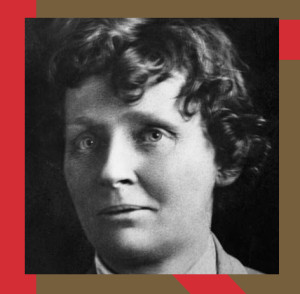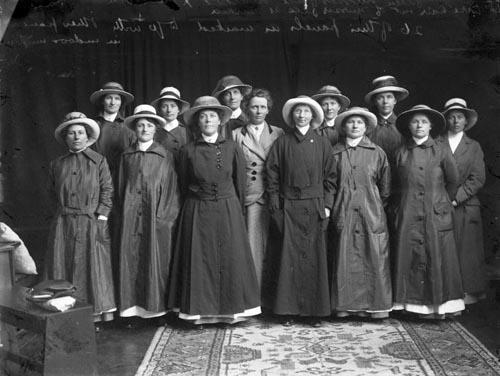Ettie Rout (24 February 1877 – 17 September 1936) was born in Tasmania, Australia, but grew up in Wellington, New Zealand. Her acts during and after the First World War made her a heroine in the eyes of the French soldiers and was duly recognized with the medal of French gratitude.
Ettie was a remarkable person before the First World War even began. She was a successfully recognized short hand typist of which she became one of the first for the Supreme Government in New Zealand in 1902, which introduced her to a lot of the wider social issues within the country. This encouraged her socialist views and in 1907 she became an active member of the Labour movement. Ettie was not only recognized by her writing but also for her opinionated views on sexuality and the way she chose to dress; short skirts, men boots and sometimes trousers. Today this is normal, but around the world women were still wearing corsets, long dresses and holding on to strict Victorian opinions of marriage and sex.
When war broke out, everything changed around the world. For New Zealand and Australia, this was the Gallipoli campaign in 1915. Despite opposition from the New Zealand government, Ettie responded to this crisis by establishing The New Zealand Volunteer Sisterhood, a group of women between the ages of 30 and 50 to care for the New Zealand soldiers in Egypt. By October of that year, 12 women were on their way to Egypt and successfully helped out in the canteens and hospitals. We are not sure who these women were, but they were all heroines.
In February of the following year, Ettie had arrived in Egypt. She was not expecting the circumstance of what she was about to confront but it became apparent that venereal disease (a sexually transmitted disease) was an epidemic among the men. This was not limited to New Zealand soldiers but was a military problem across warzones. Remember those strict Victorian opinions? Well the government thought this was a moral issue, whereas Ettie addressed the medical problem that had stumped the military. She tried to convince the New Zealand government to adopt regularity checks in brothels and to introduce medical kits for the men. This was ignored. As the problem was not being addressed by her own government, Ettie went to London in 1917, researching the problem with doctors and putting a kit together that would help tackle the disease. These were then sold to the New Zealand Medical Soldiers Club and by the end of 1917, the New Zealand Expeditionary Force adopted this kit and distributed it free of charge to soldiers who were about to go on leave. Thought it was successful, she was completely ignored and received no credit for this whatsoever.
This may have disheartened her, but she remained loyal to her campaign and went to Paris, where she established a social and sexual welfare service which comprised of just her. For her work in Paris and then in a bomb ruined town of the Somme where she ran a Red Cross Depot, France recognized her with the medal of French gratitude, Reconnaissance Francaise.


